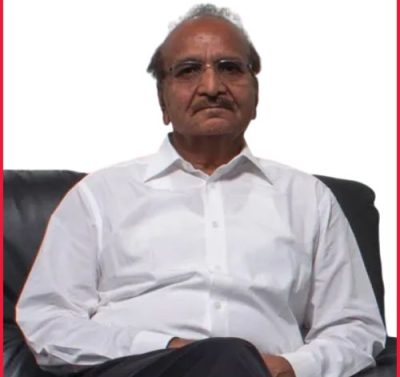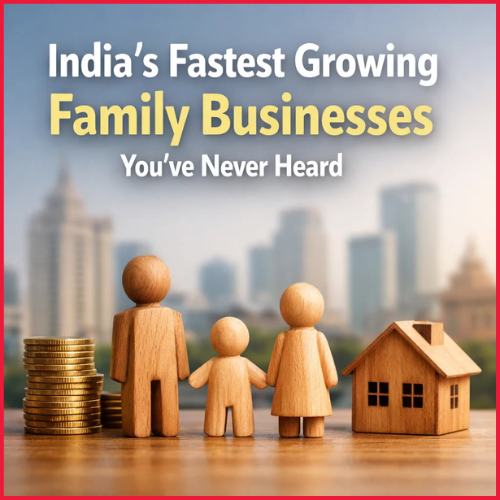Life comes with surprises every now and then. Sometimes it thrills with the adventures that are being offered to us. Sometimes it pushes you to the limit of your threshold. With all the challenges and expectations of life, humanity has always tended to survive. Mankind has witnessed s3o many storms. These storms always drag us to the corner where we go through the ultimate exams of our time. You have to admit that no matter how much life brings us uncertainties and difficulties, we always fight against them. You have to consider that you are your strongest opponent.
And every day, waking up and seeing yourself in the mirror reminds you that you are the master of your own strength. Such motivations might feel better said than done. But trust me when I tell you that no matter how difficult life can get. You have to fight it and life will always have something special for you. Maybe it is not your time and patience and gratitude will be your ally.
Life has a very deep connection with time where your every move will decide your tomorrow. In every step you choose, you ought to be accountable for that. If you can learn accountability, it is imperative that you are building yourself with a character that respects duties. The correlation behind this truth is making your personality develop traits of a leader. A leader who is accountable for the actions being taken, a leader who values time, and a leader who respects duties and delivers them. You will be the contemporary protagonist, society has always read in manuscripts. Ok! Now, this is getting extremely medieval.
But, please let Business Outreach Magazine help you take through a journey telling about those famous failed startups that could not make it through the thick and thin in their venture and had to encounter the idea of giving up. It’s never a bad thing and it is from the failures we all get to learn.

List of Famous Failed Startups in India
1. Pepper Trap
- Founded in 2014
- Founders: Milind Sharma and Navneet Singh
Pepper Trap started their journey in the year 2014. The company mainly concentrated in selling groceries and was doing business locally. The founders, Milind Sharma and Navneet Singh started the project with the idea of making a business selling groceries. The products were offered at a competitive price when compared with the local market. Pepper Trap had the plans to deliver the groceries at the doorsteps of the customer’s, in just about 2 hours.
Back in the day, this was an innovative proposition and the company could achieve a funding of about $ 51 million in about 4 rounds. But in 2016, Pepper Trap made an official announcement saying that it will shut down all operations. The budget for the marketing of Pepper Trap was too uncontrollable and the company spent a lot of money to retain the customer’s attention. This was one of the crucial factors behind the failed startup.
There were too many discounts being offered by the company on every order. This made Pepper Trap lose about 70% of the profit with no strategy to recover that amount of profit in the future. The company had no inventories and they relied on local grocery stores. They had to utilize resources constantly for their offerings to get updated. Since the local stores had no digital inventory structure, Pepper Trap had to do those manually, and this created inefficiency. The supply was not controlled and this created several shortcomings in the inventories, which made the customers cancel their orders.
2. Doodhwala
- Founded in 2015
- Founders: Aakash Agarwal and Ebrahim Akbari
Doodhwala was founded in the year 2015 and started their business delivering milk. They were based locally and had a plan to ace the milk delivery sector. The company was also into selling groceries and any other home essential products and delivering it on time at the doorsteps of the customer. Doodhwala was a business model that was based on a subscription.
There are a few reasons for the startup to fail in spite of such a promising venture. There were about 34,146 downloads calculated each month and the M-o-M, which is also a month-on-month record, was falling rapidly at a rate of 34.28% in the year 2019 on the month of October. The offers and discounts introduced by the company was making the company lose out on a lot of profits.
There were other competitors which were more promising in selling groceries and household items which gave Doodhwala a tough time in standing out from the rest. The founders of Doodhwala, Aakash Agarwal and Ebrahim Akbari were faced with an FIR by the sellers who claimed that the founders owed them a huge amount of money. The marketing head of the company, Radha Krishna also lodged an FIR against the founders complaining they owed him about Rs. 3 lakhs.
3. Local Banya
- Founded in 2014
- Founders: Amit Naik, Karan Mehrotra, Rashi Chowdhury
Local Banya started a locally based ecommerce platform in the year 2014. The company was founded by Amit Naik, Karan Mehrotra and his wife, Rashi Chowdhury. The company was the first convenience store that was operating in Mumbai as a digital platform. Local Banya had a wide spectrum of products on their website like groceries, exotic vegetables, fresh fruits, personal grooming products, snacks, breakfast items, kitchen essential products and many more.
Local Banya was successful in achieving a funding of about $ 5 million and they offered discounts and cashbacks to gain customer retention. The company had a very low inventory setup and chose to tie-up with local sellers and retailers. This created a lot of gaps in the delivering products to the customers as the local seller did not rely on a digital-centric inventory model. The products being delivered also did not meet standard quality and there were several complaints and dissatisfactions from the customers.
In the groceries and food startup, fresh funds are constantly required to meet the sustenance of the entire process. Local Banya could not gather fresh funds for the smooth processing of the business. Other competitors at that time were heavily funded and had an impeccable supply chain and logistics management. Due to fundings and proper planning, competitors had a huge inventory setup. Local Banya just could not keep up with its competitors and faced failure.
4. Tiny Owl
- Founded in 2015
- Founders: Saurabh Goyal
Tiny Owl was a food delivery startup founded by Saurabh Goyal in the year 2015. The company was locally based and had an objective to value their customers, stakeholders, vendors and the restaurants with their services. The app had the feature to showcase the portfolio of the chef and enabled the customers to see the menu through the Tiny Owl app.
This helped them order food from any restaurants that were nearby to their location. When the company started their business, orders were coming in fast. This made Tiny Owl hire more and more employees. The target of starting operations in 50 cities within a year or more was taxing for the business to grow at its own pace. The result of such inconsistency caused employees to leave the company.
Soon from a 1,000 employees, the company was left with only 200 of them. In 2016, the company was acquired by Roadrunnr. If a company starts to grow and more people are being hired, several structures are required to maintain the workflow of the business. It is very difficult to organize such structures along the business growing at its side. It was also noticed that the company overhired delivery agents and this is when the profits took a blow and hampered the growth of the company.
The founders could not scale and wanted to spend more money on newspaper advertisements and on other marketing tools for attracting customers. Tiny Owl over-hired with the fundings and this caused several gaps in the scaling of the company.
5. Bite Club
- Founded in 2014
- Founders: Prateek Agarwal, Aushim Krishnan and Siddharth Sharma
Bite Club was a food delivery startup that was founded in the year 2014. The project had a plan to attract food aficionados and chefs together under one beautiful community. The mobile app of the company offered menus getting modified which had the motive to draw more customers. Bite Club partnered with experienced chefs and home-cooked foodmakers for delivering lunch and also dinner to the customers.
The promising venture attracted investors and the company also raised a funding of about Rs.1.5 crores from Powai Lake Ventures. Bite Club had a steady growth and the startup in Gurgaon recorded selling about 274 meals every day and about 1 lakh meals in a year. But after achieving funds, the founders decided to pull the plug after a year considering the tough competition in the market and facing losses in the business. One of the biggest failures of Bite Club was that it could not maintain the standard quality of the meals it provided to the customers.
Although the company was scaling, the inconsistency in the quality dragged them away from profits. There were so many discounts being offered that the funds were getting exhausted. The meals for each person was between Rs. 100 to 300 and it was not sustainable. Home Cooked foods were Bit Club’s biggest competitors and customers preferred meals that were prepared at home.
6. Dazo
- Founders: Monica Rahtogi and Shashank Sekhar Singhal
Dazo was a food delivery project founded by Monica Rahtogi and Shashank Sekhar Singhal. Dazo aimed to deliver fresh food to the doorsteps of the customers. The startup’s strategy was to partner with only 20 restaurants that offered a dynamic menu and had good reviews.
Dazo considered that customers who were hungry had no intention to check several restaurants before ordering their food. The startup only concentrated on providing good quality food at an affordable cost for the customers. There was immense competition in the food delivery industry. These led Dazo to offer more discounts that took a hit in making profits for the company. Dazo was also unsuccessful in raising more funds and ultimately shut down their operations.
7. GrocShop
- Founded in 2014
GrocShop was founded in 2014 as an online groceries delivery startup. The startup had the idea of delivering groceries and household essential items from local retailers to the customers in the fastest time possible. Customers had the feature to get their orders delivered to them anywhere they want. It could be their homes or offices or even while traveling.
The app ensured the convenience of the customers and made every effort to maintain the quality of services. GrocShop became so popular that it got supported by Microsoft’s programme for startups called BizSpark. According to the programme, a startup being considered under this project will get support in terms of being provided with resources, tools and exposure for a period of three years. GrocShop also got selected for Google Launchpad in the year 2015.
The company laid off a few employees to maintain an asset which is light and sustainable. Roadrunnr and Grab were collaborated as the logistics partner with GrocShop. In spite of such exposure and support, the company could not survive and listed itself as another famous failed startup. GrocShop was unable to handle high maintenance of logistics and the cost of customer acquisitions. Outsourcing services were more costly for the company and incurred heavy losses. Huge cash requirements due to lack of fresh fundings led the company to shut down its operations.
8. Yumist
- Founded in 2014
- Founders: Alok Jain and Abhimanyu Maheswari
Yumist was founded by Alok Jain and Abhimanyu Maheshwari in the year 2014. It was a food delivery project that was another failed startup in India. Yumist started with the idea of delivering freshly cooked meals delivered to the customers within just half an hour with the help of some taps on the screens. The company collaborated with Zomato and Swiggy to provide home cooked foods in order to serve their customers better. But like some failed startups, Yumist had reasons too.
There were bases of operations for preparing food for the company. This led to the closure of the Bengaluru branch of Yumist. In Bengaluru, the cost of operations were increasing at an exponential rate which led to deeper cuts in profit margins. There were no sufficient funds for the startup to maintain their business. Ultimately, Yumist had to shut down.
9. Mr. Needs
- Founders: Hitashi Garg, Ravi Wadhwa, Ravi Verma and Yogesh Garg
- Founded in 2016
Mr. Needs was founded by Hitashi Garg, Ravi Wadhwa, Ravi Verma and Yogesh Garg in the year 2016. The startup began their business selling groceries, milk and other daily household essential items through their mobile app on a subscription basis. The most prominent reason for the company to fail was the challenging competitions from BigBasket and Grofers which dominated the market.
10. Monkey Box
- Founded in 2015
- Founders: Sanjay Rao, Sandeep Kannabadi and Vijay Bharadwaj
Monkey Box is an example of another food delivery startup that includes themselves in the stories of famous failed startups. The company was founded in 2015 with the initiative to deliver healthy and nutritious meals to kids to the school. Monkey Box acquired a healthy meal delivery focused company called ‘75 In a Box’ which provided its services to the corporate professionals.
This acquisition took place in December, 2017 and helped the company gain a customer from the age group of adults. Monkey Box were successful in delivering about 10,000 meals for kids on a daily basis. The founders of the company, Sanjay Rao, Sandeep Kannambadi and Vijay Bharadwaj shut down the operations after facing heavy losses. Monkey Box were unable to keep up with the B2B system. The daily B2B cost of operations was getting expensive for the company. Monkey Box also planned to scale faster than what it could handle. They were overhiring within months and failed to control the smooth operation of decentralized kitchens.
11. iProf
- Founded in 2009
- Founder: Sanjay Purohit
iProf is a failed edtech startup in India that was founded in the year 2009. The founder of the company Mr. Sanjay Purohit had a vision to provide quality educational content for students which would help them achieve their academic purposes. The startup introduced digitized forms of notes, educational videos and practice papers for the students to learn at their own pace.
The entire package was priced at Rs. 14,990 and was introduced as a learning platform for students to gain more knowledge and revise their learnings. The failure behind the initiative is rooted in the schools which were reluctant to approve the study materials provided by the startups. The internet provided a lot of free content which led the startup to struggle in curating their worth to the customers. Byju’s gave a tough competition to iProf and the market seemed to draw their attention towards Byju’s.
12. Purple Squirrel
- Founded in 2013
- Founders: Aditya Gandhi and Sahiba Dhandhania
Purple Squirrel is an example of another failed edtech startup in India. The company was founded in 2013. The idea behind this startup was quite unique and insightful. Purple Squirrel took their students on a trip to industries and workplaces for workshops as a part of the curriculum of the startup. The founders Aditya Gandhi and Sahiba Dhandhania incubated Purple Squirrel at the Indian Institute of Technology in Bombay in the year 2013.
Purple Squirrel aimed to introduce these students to companies with an objective to get the students placed. In return for head hunting skilled candidates, the company would pay a commission to Purple Squirrel. This plan was indeed noble and had the opportunity to create employment for the students. But shortly after, the startup failed in spite of raising a fund of about Rs. 16 crores. Purple Squirrel failed because they could not achieve the targets and they ran out of funds.
Fresh funds from investors could have made this project a success, but that was not the case for Purple Squirrel, since no new investors provided any sort of capital for the startup. Travel agents were the startups strongest competitors and educational institutions always partnered with travel agents keeping a strong planning of cost already structured.
The expertise of these travel agents led them to bring bulk inventories from hotels that are from well-known destinations. Purple Squirrel could not keep up due to less volume. Purple Squirrel were utilizing their own cash to stay in the market. This resulted in heavy losses and the company finally shut down its operations.
13. GoZoomo
- Founded in 2014
- Founders: Arnav Kumar, Aniket Behera and Himangshu Hazarika
GoZoomo was an online marketplace for selling used cars. The startup did not partner with car dealers but went on listing cars after its proper inspection. GoZoomo was founded in December, 2014 by Arnav Kumar and Himangshu Hazarika who were alumni of Indian Institute of Technology, Kharagpur and Aniket Behera who were the alumni of Indian Institute of Technology, Bombay.
GoZoomo was able to get fundings of about $ 7 million through several venture capital firms. The startup could not put standardized prices on the cars according to the condition of the vehicle and the features it provided. The startup could sell only 20 cars from every 100 cars that got inspected. This was not sustainable for the profits of the business.
GoZoomo was at a time when the second hand car market was still at its budding stage. Other online portals for used cars provided competitive pricing on a car and the customers preferred to shift their attention to those other online marketplace for used cars.
14. Loan Meet
- Founded in 2015
Loan Meet was a fintech startup in India that started in 2015. The company was supported by Madhusudan E, who was the CEO of KrazyBee. Loan Meet provided capital necessities, channel financing and also cashed line of credit in the range Rs. 5,000 to 5 lakh that had a tenure of 15 days to about 9 months. The startup in Bengaluru had to cease operations in 2017 due to lack of funds.
Strong competition from companies like Capital Float, Loan Frame and Happy Loan had bigger books of loan and were aggressive in the sector of SME loans. Companies with better planning and structure already dominated the lending market and the investors were not willing to take the plunge with Loan Meet.
15. Zebpay
- Founded in 2014
Zebpay was a failed fintech startup that was founded in 2014 that dealt with cryptocurrencies like Bitcoin, Ethereum and several others by providing a wallet that offers its services to many customers globally. Reserve Bank of India initiated a policy to stop its authorized entities from any operations with companies doing businesses with digital currencies. Such regulations put a halt in transactions and the customers could not do business.
16. Koinex
- Founded in 2017
Koinex was a fintech and crypt trading platform that was founded in 2017. The online platform was a peer-to-peer based exchange system which allowed interested buyers to offer their bids and the sellers would inquire about the digital currencies they wanted to trade with.
In the year 2018, the Reserve Bank of India stopped its regulated bodies from enabling transactions with platforms that were doing business with cryptocurrencies. This created a lot of hassles for companies and investors. Eventually, the company had to shut down.
17. Card Back
- Founded in 2012
- Founders: Nidhi Gurnani and Nikhil Wason
Card Back was founded by Nidhi Gurnani and Nikhil Wason in the year 2012. The startup offered a service where any credit card or debit card holder can check any available offers associated with their card without sharing personal information. Card Back raised a funding of about $ 170k during its span of 5 years of operations.
A few angel investors that supported the startup were Rajan Anandan, Sunil Kalra, Alok Mittal and several others. Back in the day, the market in India was not mature enough and people usually did not possess more than one credit card. The safety and security protocols of the product required more fundings and the investors were not ready to dive into the project. The company tried to relocate their base of operations to Singapore, which was known for a customer base holding more credit cards. But the lack of fundings was an issue for the company to scale.
18. Doc Talk
- Founded in 2016
Doc Talk was a healthtech startup that was founded in the year 2016. The startup wanted to scale on an innovative idea which enabled doctors to get text messages from their patients. The patients also could save medical reports and get prescribed medicine from their doctors. The idea was to save cost on medications. Doc Talk helped doctors in writing digitized prescriptions and allowed the doctors to forward prescription templates that can be customized.
This entire digital process would help save time and money for both doctors and patients. The cause of failure of this project was in the transitioning of the digitized method of communication to EMR business. The updated EMR solution of the startup was bearing a hefty cost than the communications medium. Doc Talk also got strong competition from other companies like Practo, Lybrate and many more. The services offered by Doc Talk could not stand against other competitors.
19. BabyBerry
- Founded in 2014
- Founders: Balasubramanian Venkatachalam, Suhasini Subramaniam and Dev Vig
BabyBerry is an addition in the list of famous failed startups in India. In the year 2014, Balasubramanian Venkatachalam, Suhasini Subramaniam and Dev Vig founded the company with an objective to provide a holistic and healthy environment for babies to grow and develop.
The wellness startup brought with several services like digital vaccination, helping parents discover doctors for their babies, safekeeping health records and providing proper management of diet. BabyBerry also joined hands with experts like nutritionists, pediatricians and child psychologists. The startup lacked proper revenue structure and collapsed after sometime.
Conclusion: Failed Startups of India
To conclude, stories of famous failed startups always come to our attention every now and then. It is a perfectly natural thing to venture towards a goal and fail to succeed in it, That will never mean to give up. Our failures are our biggest lessons and should be considered as an ally. Failures will always help an individual take better decisions in the future which will turn out to be meaningful.
It might come to your mind that you want happiness now and will not wait for the future. But it is crucial for humanity to understand that great things do not happen overnight. It takes time, patience and an extreme amount of resilience to fight against all odds and be victorious. The successful companies that we live with took time to beat the challenges and be successful.
In order to be successful and accomplished, it is imperative for us to consider time and gratitude to be by our side and make a network with people who respect and value hard work and actions.
Also Read More –
Best Startups To Invest In 2022
World’s Most Successful Startups
4 Crowdfunding platforms For Startups
Up to 80 Startups Register in India per day, Says DPIIT Secretary
Only 23 of the 100 unicorn startups in India are profitable
Rejected Startups In Shark Tank India
Microsoft is introducing Founders Hub Platform for startups
A Brief Guide To Startup Funding
Cred raises $80 million, valuation jumps to $ 6.5 billion
5 Unbelievable Facts About Zoho Products















